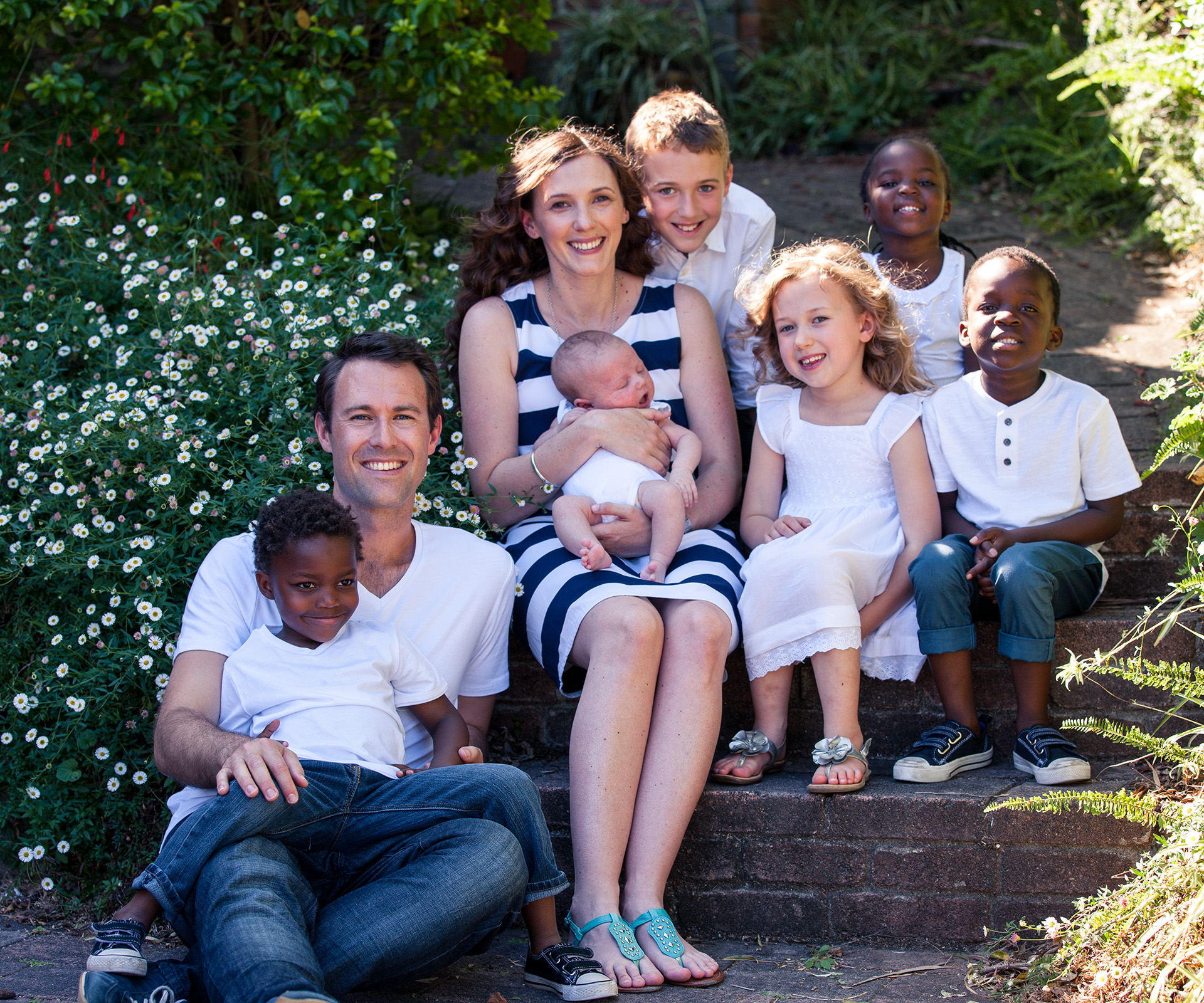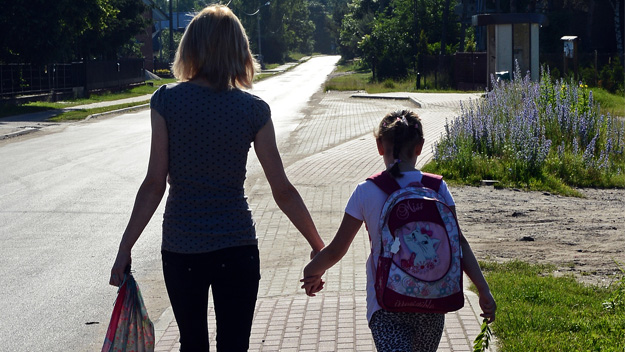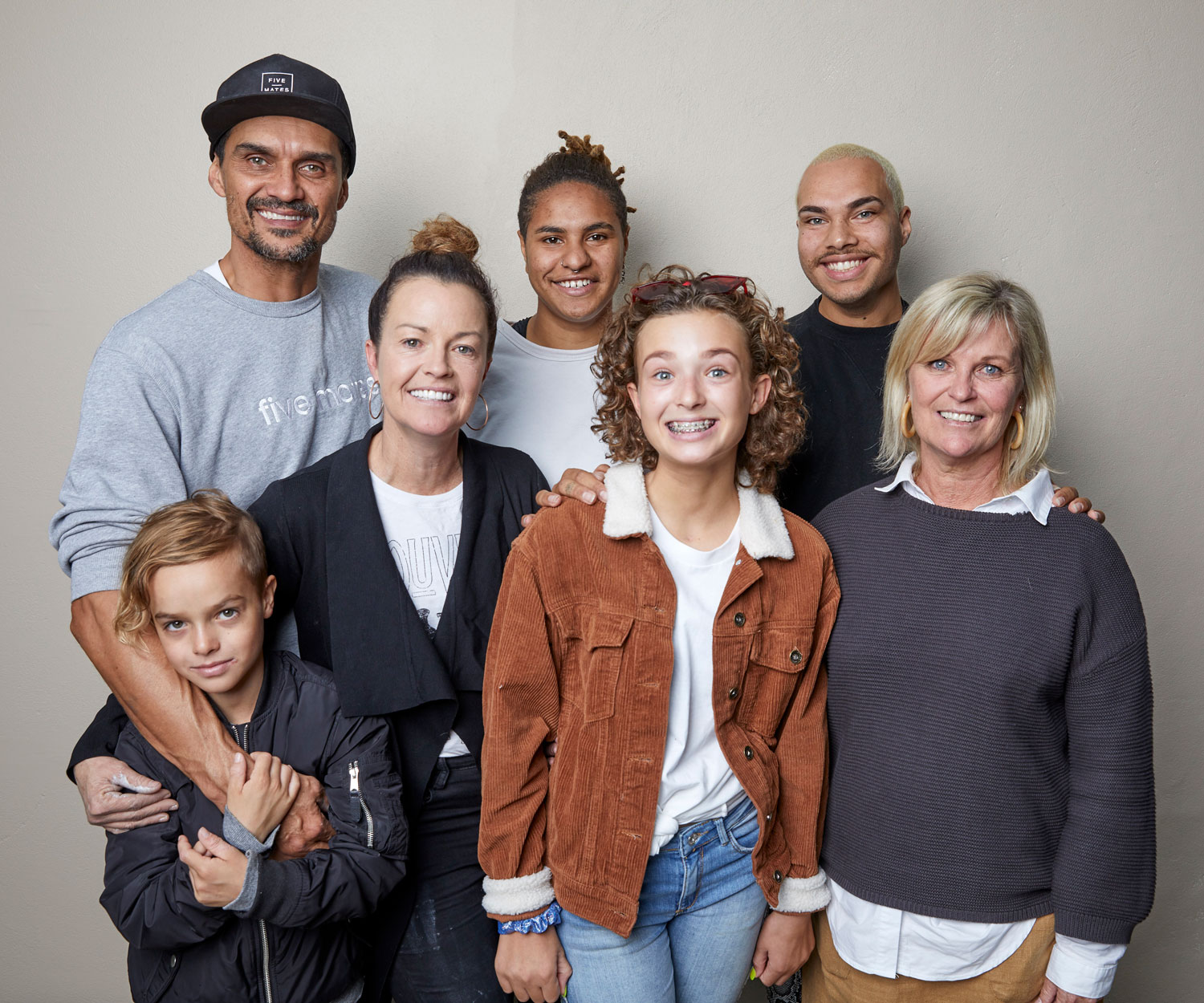Rachael Clancy was at the hospital with a tiny newborn baby, ready to take on the role of foster mum.
As staff readied paperwork, she was handed a hospital garbage bag.
“It was tied up and had one tiny little dirty outfit in it and off we toddled with the baby,” she tells The Weekly today of the moment that would kickstart an initiative that she hopes will change the future for foster children across the country.
“It really hit me that day. Here is this innocent little child, weighing just four pounds. Surely we can do better for these kids?”

“I grew up with a lot of brothers and sisters. Probably about 30. And I just loved it.” Rachael on her own experience with the foster care system.
(Justin Aveling)At 11 years old, Rachael had been introduced to the world of fostering as her parents brought the first of many children in care into their household.
“I remember they got a phone call and there was a little baby who needed somewhere to go,” she recalls.
“He was sitting at the police station and got dropped off with us that night. All of a sudden, I had a little baby brother.
“He didn’t stay with us for long, but soon after, I had another little baby brother – who still lives with us, he’s 21 years old now – and then there were multiple children after that.
“Some long-term, lots of short-term quick respite ones, but I grew up with a lot of brothers and sisters. Probably about 30. And I just loved it.”
At 28, Rachael began fostering herself. She’d received a call that a two-and-a-half-year-old girl needed urgent care. Despite her tender age, the toddler had already been passed through 27 different homes and was incredibly traumatised.
Although Rachael was single, living in a share house and a full-time student, she leapt into action.
First, she found a home of her own. And then, just like her mum before her, she headed off to the shops to ensure the newcomer would have everything she needed.
For one thing Rachael had learnt was that while each foster child’s circumstance, age and needs were different, one thing was universal: all they would have with them when they arrived would be a garbage or plastic bag, hastily packed with a few meagre possessions.
“What message are we sending to these kids when all we are doing is making them drag their stuff around in a garbage bag, a plastic bag that’s meant for trash,” Rachael pondered.
“It’s pretty much reflecting them as garbage. As unwanted, rejected children.”

“What message are we sending to these kids when all we are doing is making them drag their stuff around in a garbage bag, a plastic bag that’s meant for trash.” Rachael knew something needed to change in the foster care system.
(Justin Aveling)Fast forward to her light-bulb moment in that hospital with yet another garbage bag in hand and Rachael hit upon a solution.
If a child had their own suitcase full of all the things they would need – from new clothes, toiletries, toys, journals, and other personally-chosen treasures – surely that would help to create a sense of hope, self-worth and self-esteem.
“Not just a little bag shoved together to get you through a night but a suitcase full of belongings that you can take with you,” she explains. And that’s how Hope In A Suitcase Australia was born.
At first, Rachael approached local swap, buy, sell groups. Her early suitcases were made up with items paid for out of her own pocket.
Next, she attended community events, sharing her story and calling out for donations.
At one of those events, she met a group of women who donated things they’d sewn themselves. They were so impressed with Rachael’s work that they submitted her as a nominee to The Panadol Care Collective.
She won – and Panadol not only provided a care package but also created an ad campaign for the charity which has enabled Rachael to extend her reach beyond the Hunter NSW region, where she is based, into Queensland, Victoria and Tasmania.

Rachael started Hope in a Suitcase out of her own pocket.
(Justin Aveling)“The generosity and help they have given me has helped with a larger scale of audience,” she explains.
She works with child protection workers to get the suitcases out to their individual cases; children who would question, “But who do I give it back to?”, not realising that after years of being moved around in the system this time they were being given a permanent possession to take on their journey.
“They noticed the difference it made in kids,” Rachael says.
Donations from kids across the region, wanting to do their bit to help, have poured in. But one in particular has stayed with Rachael, who is now 33 and has fostered 11 children since she started six years ago.
Two overnight bags arrived at her office, packed by two sisters – 12 and 14 – who had themselves received suitcases when they went into foster care.
Now in a new home, they asked their foster parent if they could be taken to the shops to spend the pocket money that they’d managed to save.
“They put a suitcase together each,” Rachael says with a broad smile.
“Each suitcase contained a journal and they’d both written to the child who would receive it that they hoped they felt loved like they did when they got their own bags.
“And that they hope they find a loving home like they have – they know how hard it is, because they’ve been through it too. It was so touching.”
Rachael’s eventual aim, she tells us, is to have legislation that requires each child in foster care to be entitled to a suitcase with their own belongings.
“If we want to break the cycle of children in care ending up homeless and with mental health issues and then having kids who also end up in care, that’s never going to happen if we don’t start from scratch,” she explains.
“I don’t see why a child is going to feel they deserve better in life if they’re made to feel like trash from the beginning. I don’t see how we can expect more from them.
“I always say, these kids could be the next prime minister or the surgeon that saves your child’s life. They need someone to see beyond the fact that they are labelled ‘foster child’ and see they’re capable of much more than that.”
Read Rachael’s story and many others in the November issue of The Australian Women’s Weekly – on sale now




